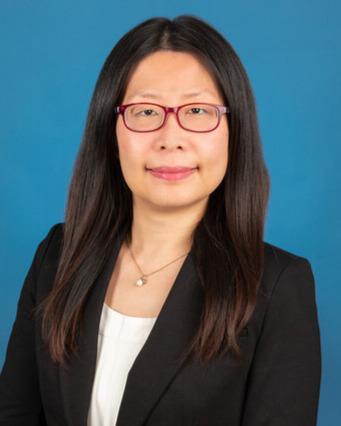
Meet Dr. Pei-Chun Tsai

Pei-Chun Tsai, PhD, grew up in Taiwan and earned a Bachelor degree at National Taipei University of Education. She was on track to become an elementary school educator when she discovered psychology and counseling. The idea of conducting research and practicing psychology appealed to Dr. Tsai, so she enrolled to study abroad at Indiana University-Bloomington (IU), where she earned a master’s degree in counseling and counselor education. There, Dr. Tsai discovered the concept of culturally relevant coping strategies, specifically from a culturally relevant, strength-based perspective.
Dr. Tsai attributes this discovery to her IU faculty supervisors. “They helped me believe in myself and become a better therapist by encouraging me to use my strengths in therapy sessions,” she said. She recalls her supervisor advising her that she would flourish and thrive if she could identify her strengths and use them to help other people find theirs. “I found this advice very inspiring and beautiful,” said Dr. Tsai. “It registered in my mind, and I wanted to use my teaching and research to pass this forward to my students and future generations.” Dr. Tsai was disappointed to discover, however, that much of the literature, especially as it pertained to international students and people of color, focused on limitations and their association with negative mental health outcomes. This discovery led Dr. Tsai to focus her research on coping with adversity from a strength-based perspective.
Dr. Tsai went on to earn a PhD in Counseling Psychology at Iowa State University. For her doctoral dissertation, she developed a scale to measure trainees’ anxiety in clinical work and explored coping resources (i.e., supervisory working alliance and self-compassion) that help to alleviate the negative impact of anxiety on their counseling self-efficacy. She received several awards, including the Outstanding Counseling Psychology Graduate Student Award, the University Teaching Excellence Award, and the Diversity in Psychological Science Graduate Research Award.
After serving as a predoctoral psychology intern at Georgia Tech Counseling Center, Dr. Tsai landed her first faculty position as an assistant professor at Radford University in Virginia. There she taught and pursued her research interests in the areas of counseling racial minorities using strength-based coping strategies as well as coping with adversity from strength-based perspectives among the clinical population.
She has authored nearly a dozen peer-reviewed articles for publications such as Counseling Psychology Quarterly, The Counseling Psychologist, and the Journal of College Counseling and presented her research findings at more than thirty national and international conferences. In 2021, Radford University Department of Psychology promoted Dr. Tsai to an associate professor.
Now at Palo Alto University, Dr. Tsai is completing her first year as an Associate Professor in the Doctoral Program in Clinical Psychology. “The PAU faculty have been very generous in sharing their resources and tips on everything from how they lead their research lab to how they help and support their students,” she says. She is in the process of developing a qualitative study with her colleagues from San Francisco University focusing on the non-native English-speaking faculty in the United States, their unique challenges and strengths, and their developmental trajectory in coping with language barriers.
When Dr. Tsai is not in the classroom or conducting research, she enjoys spending time with her husband and two daughters, ages two and four. “I love reading books to them and not following the story word for word, but rather being a kind of actor that brings the story to life,” she says. “We also love the seaside, visiting different beaches and collecting shells and postcards.”
When Dr. Tsai is not busy with her two daughters, she loves to cook and experiment with different ingredients to make original recipes. “I love grocery shopping to find new ingredients. There are so many ethnic grocery stores in California, which I appreciate because in Radford, Virginia, we only had one,” said Tsai. “I love making dumplings, fried spring rolls, and rice dumplings.”
Dr. Tsai explained that in Taiwanese culture, when people greet each other instead of asking, ‘How are you?’ or ‘How’s it going?’ it is customary to ask whether someone has eaten, for example, ‘Have you had your breakfast?’ or ‘Have you had your lunch?’ She says, “It is a way to show that we care about the other person. Food is the most important kind of caring.”